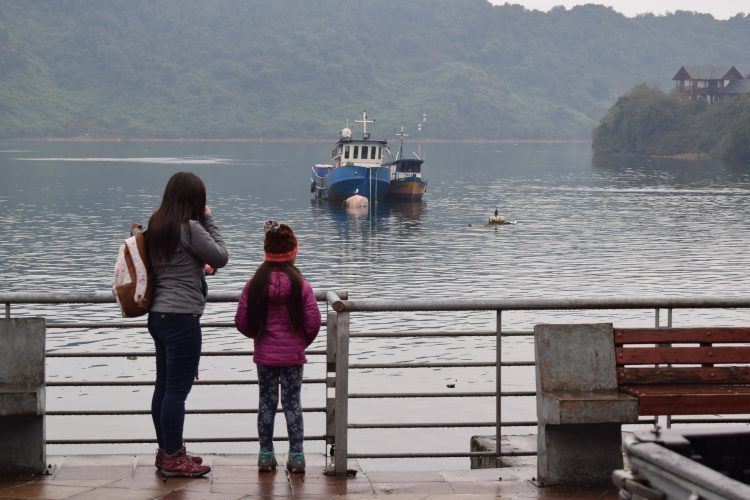The right to education is one of the central issues that will be discussed by the Constitutional Convention, the body that has now begun its sessions and whose mission will be to draft a new fundamental text in a period of nine months to replace the Chilean Magna Carta.

Foto: Jmezamaipu
To learn about European experiences in the area, experts from Spain and Portugal debated in the series of conferences entitled “EU-Chile Counterpoints for the Constituent Process”, organised by the European Union Delegation to Chile, through the EUROsociAL+ programme, together with LEXEN, the Interfaculty Centre for Law, Economics and Business at the University of Chile, the Centre for Future Studies at the University of Santiago, and the European Studies Programme at the University of Concepción.
The panel was attended by Ana Valero, lecturer in Constitutional Law at the University of Castilla-La Mancha in Spain and Antonio Augusto Neto-Mendes, lecturer with the Department of Education and Psychology at the University of Aveiro in Portugal, who explained how the legal standards related to the right to education work in Europe.
Valero explained that the European Court of Human Rights establishes that the right to education must be “a non-indoctrinating education, which means that all the subjects on the official educational curriculum must have a plural, neutral and objective character. Education must be democratic, fostering shared coexistence in freedom, respectful of the plural options and the religious and philosophical logics existing in society, and forming active, participatory citizens with a critical capacity”.
Valero added that an education that is biased, limiting and based on false scientific references is contrary to the principles of coexistence and to the values espoused by the European Convention of being “comprehensive and aiding the full development of the human personality.” In this sense, she stressed that this right prevails over the right of parents “so that their children receive teachings that contradict the convictions they profess and that they can legitimately instil in their child in the family environment.”
This is how “the convictions of the parents give way to the right of the minor to receive a plural and therefore comprehensive education,” said the academic. “Some of the curricular teachings may be in contradiction with parental convictions and this has generated refusal by parents to allow their children to take these subjects” states Ana Valero. For example, in Europe some Muslim parents have refused to allow their daughters to participate in physical education because, according to the Koran, girls are not allowed to show their bodies in front of their peers. “This is a conflict between parental educational rights and the right of the minor to receive a comprehensive education that contributes to the full development of their personality. The right that prevails is the right of the minor”, she stated.
The Court of Strasbourg – where the European Court of Human Rights is based – has determined in its judgements “that the State, in the exercise of its educational powers, is not obliged to fully accommodate parental convictions. The only thing that parental rights prevents is indoctrination”, remarked the professor. “The parental right requires the State to ensure that the knowledge included in the official educational curriculum is taught and disseminated in an objective, critical and pluralistic manner, thus avoiding the indoctrination of students by the State” she added.
The role of the State
For his part, Alfonso Henríquez, from the European Studies Programme at the University of Concepción, agreed with the professor and established that “the student is the holder of a fundamental right and has the right to an objective, critical and pluralistic education. The State must guarantee this standard”.
Regarding the role of the State, Antonio Augusto Neto-Mendes, lecturer with the Department of Education and Psychology at the University of Aveiro in Portugal, considered that “The State should not only be a regulator, but it has to be able to take on its role and intervene in education”.
“A State must offer an opportunity for socialisation and comprehensive development for children through the coexistence of children and families with different socio-cultural and economic backgrounds”, he said.
Non-discrimination
Regarding the guarantees of non-discrimination in access to education, the lecturer in constitutional law indicated that this is not met when there is “any administrative or legal impediment to access by minors to educational centres, and constitutes a clear violation of their right to education”.
She gave as an example the case that came to the European Court in 1999 of Roma children who in the Czech Republic “were sent to schools for children with mental problems”. The transfer to these centres was decided by the school authorities after studying the results the children had obtained in a special examination only they had taken, without the consent of their parents.



